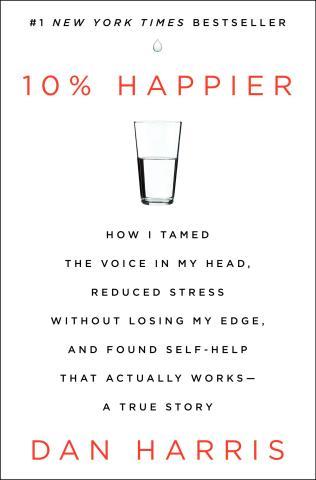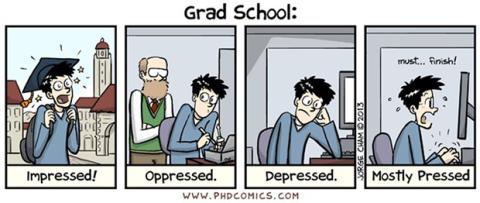You successfully applied to a range of medical or dental schools and now are anxiously waiting to be contacted about interviews and (hopefully!) acceptances to these schools. During this time, it is normal to feel anxious, worry that you have not provided enough information, or think that there is something else you can do to improve your chances. Maybe you are tired of family or friends asking, “have you heard yet?” Here are common challenges and strategies to help you maintain your sanity and manage stress during this time: Common Questions
Life can be challenging at times, as scientists in training you know this all too well. When daily life doesn’t go as planned it can lead to lack of motivation, frustration, and sadness. Stress and strain can be draining, leaving you with less than 100% of yourself to put into your work, relationships, and pleasurable activities. How do you make it through? Resilience—it can help you manage the tough times allowing you to persist and persevere in whatever the challenge may be.

Have you ever taken the Myers Briggs Type Indicator (MBTI)? If so, you know that this is an assessment with the aim of measuring your personality preferences along four different dichotomous dimensions. The MBTI helps people answer the following questions: Where do you focus your attention and/or get your energy?; How do you prefer to take in information?; How do you make decisions?; and finally, How do you organize the world around you?
Even the most optimistic person is not immune to negative thoughts, but for some, automatic negative thoughts (ANTs) are a regular part of life and the chatter of self-doubt and worry can be constant.

Dan Harris is a correspondent for ABC News, an anchor for the show Nightline, a meditation skeptic turned believer, and the author of the book 10% Happier: How I Tamed the Voice in My Head, Reduced Stress Without Losing My Edge, and Found Self-Help That Really Works – a True Story.
After an on-air panic attack in 2004, Harris went on a journey to figure out why he had been experiencing panic attacks. Part of this journey led him to discover the benefits of meditation and he now wants to spread the word.

If you have a Monday through Friday job, then at some point in your career you have probably experienced the “Sunday Blues.” It often starts around Sunday afternoon with a slightly depressed feeling that your weekend is coming to a close. Along with sadness often comes an uptick in your level of anxiety thinking about Monday morning and the week ahead. Sound familiar? Many people think they are the only one who suffers from a feeling of depression/anxiety on Sunday, but this happens to a lot of people…even people who report that they generally like their jobs.

Find yourself stressed out from work? Between the office/lab environment, mentor and mentee relationships, outside training and education, and life demands, it is all too common for stress to hijack your wellbeing. One quick effective way in dealing with life stress is to use techniques in mindfulness meditation.

We often talk about decision-making within this blog because so many decision points come up within a career. We have discussed how people can drift into decisions and how one can use a prioritizing grid in order to help make a decision.

Find yourself swamped with work but unable to focus? Ever wonder how to quit procrastinating? At OITE, we often get asked about strategies and tips on how to improve one's time management and productivity. This From the Archive post offers unlikely advice on how to handle these work challenges.


